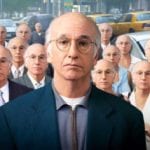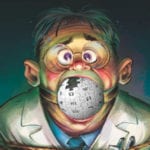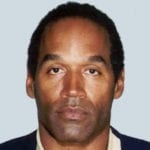 Mysteries
Mysteries  Mysteries
Mysteries  History
History 10 Surprising Stories About the Texas Rangers
 Humans
Humans 10 Philosophers Who Were Driven Mad by Their Own Theories
 Miscellaneous
Miscellaneous 10 Video-Game-Worthy Weapons and Armors from History
 Weird Stuff
Weird Stuff 10 Psychics Who Accurately Predicted Wartime Events
 The Arts
The Arts 10 Pieces of Art Inspired by a Broken Heart
 Health
Health 10 Science Fiction-Sounding New Medical Treatments
 History
History 10 Surprising Facts About the Father of Submarine Warfare
 Space
Space Ten Astonishing New Insights into Alien Worlds
 Weird Stuff
Weird Stuff 10 Bizarre Summer Solstice Rituals Still Practiced Today
 Mysteries
Mysteries Top 10 Haunting Facts About the Ghost Ship MV Alta
 History
History 10 Surprising Stories About the Texas Rangers
 Humans
Humans 10 Philosophers Who Were Driven Mad by Their Own Theories
Who's Behind Listverse?

Jamie Frater
Head Editor
Jamie founded Listverse due to an insatiable desire to share fascinating, obscure, and bizarre facts. He has been a guest speaker on numerous national radio and television stations and is a five time published author.
More About Us Miscellaneous
Miscellaneous 10 Video-Game-Worthy Weapons and Armors from History
 Weird Stuff
Weird Stuff 10 Psychics Who Accurately Predicted Wartime Events
 The Arts
The Arts 10 Pieces of Art Inspired by a Broken Heart
 Health
Health 10 Science Fiction-Sounding New Medical Treatments
 History
History 10 Surprising Facts About the Father of Submarine Warfare
 Space
Space Ten Astonishing New Insights into Alien Worlds
 Weird Stuff
Weird Stuff 10 Bizarre Summer Solstice Rituals Still Practiced Today
Top 10 Serious Movies Starring Comedy Actors
No joke – the comedians on this list seriously shine in dramatic roles.
The ground rules: to qualify for this collection, actors needed to start their mainstream careers in comedy. That dismisses, for example, Whoopi Goldberg, who regularly appeared in dramas like The Color Purple early in her career. Also, only movies where the actor played the lead or a strong secondary role made the cut. No bit roles or cameos allowed.
Without further ado, the nominees for Best Dramatic Film Featuring a Comedy Actor, presented in chronological order:
Top 10 Best Recent TV Comedy Series
10 The Hustler (1961)
Jackie Gleason may be the first Hollywood star to fall victim to typecasting. Even today, it’s nearly impossible to separate him from iconic bus driver Ralph Kramden from the groundbreaking 1950s sitcom, The Honeymooners. So ingrained in our cultural association is Gleason as Kramden that the character has a statue at New York City’s Port Authority Bus Terminal.[1]
For the husky Gleason, it took another larger-than-life role to effectively emerge from Kramden’s sizable shadow. That opportunity came in the 1961 drama The Hustler, in which he portrays legendary pool player Minnesota Fats.
Opposite Paul Newman as small-time pool hustler “Fast Eddie” Felson, Gleason’s Minnesota Fats sets a blueprint for every cocky antagonist in sports films since. A heavyset Apollo Creed to Newman’s Rocky, Gleason falls behind then quickly rebounds to erase an $18,000 debt to the upstart Felson, who then embarks on a hero’s journey punctuated by romance and physical setbacks in the form of two broken thumbs, even as he sharpens his game for a rematch with the champion. It’s a story of winning, losing and character-building against the seedy backdrop of 1960s pool halls.
The Hustler received an amazing eight Academy Award nominations, including Newman for Best Actor, Gleason for Best Supporting Actor, and Best Picture. It won the black-and-white categories for Art Direction and Cinematography. Its impact on culture was just as profound, sparking a resurgence in the popularity of pool.[2]
9 Blue Collar (1978)
Richard Pryor is on everyone’s short list of best stand-up comedians of all time, including the top spot on Rolling Stone’s rankings.[3] With a slew of crucially-acclaimed comedy albums, acting appearances and writing credits under his belt, he’s one of the few comedians who needn’t do anything serious to be taken seriously.
Considering this, the 1978 crime drama Blue Collar, which pits Pryor opposite Harvey Keitel, shows the comedian taking a different tack despite being at the pinnacle of his profession. The film explores the erosion of workers unions in late-1970s America, prompting two financially-strapped auto workers to rob the union’s safe. Though they don’t come away with much cash, they discover a ledger documenting evidence of the union’s illegal loan operation and ties to organized crime.
An unsuccessful attempt to blackmail the union ends in one of their murders, and leads to Pryor’s character, Zeke Brown, being consigned to work for the corrupt union bosses with promises of financial and professional gains.
Both Pryor and the film received rave reviews, especially from famous movie-review team Gene Siskel and Roger Ebert. It also holds a perfect 100% score on Rotten Tomatoes[4] – a rarity.
8 One Hour Photo (2002)
While Good Will Hunting is the most critically acclaimed film with Robin Williams in a serious role (he also saved Insomnia, starring an overrated Al Pacino, from being unwatchable), One Hour Photo is his best as lead actor.
Released in 2002, the film provides a chilling precursor to our social media-saturated, privacy-deprived existence. The creepy trailer intersperses clips with escalating warnings: “He knows your name… He knows your life… He knows where you live.”
Then Williams’ voice: “The word ‘snapshot’ was originally a hunting term.”
Williams plays Seymour “Sy” Parrish, a film developer at a big box store. Single, friendless and socially awkward, Sy becomes obsessed with a family he idolizes as picture-perfect – a theme which, viewed through today’s social media-filtered lens, bears an eerie resemblance to the alienation people can feel when scrolling through Facebook and seeing beaming, laughing and largely cherry-picked personal highlight reels.
Sy’s idyllic vision of the family is shattered when he learns that the husband is having an affair. He snaps, literally exposing the mistress to the wife by mixing photos of the tryst in with family photos. Later, he tracks the husband and mistress to a hotel room, where he forces them at knifepoint to pose in lewd positions for his camera.
Considering it was made four years before the advent of Facebook, One Hour Photo’s “dangers of social media” motifs – smile-for-the-camera phoniness, FOMO-ism, life envy – make it decidedly ahead of its time.
7 Lost in Translation (2003)
A dramatization of a casting meeting for the lowest-budget film on this list, by far.
“We have four million dollars[5] to shoot on location in Tokyo. Who should we get to basically flop around a hotel for 90 minutes of sexual tension with a young, relatively unknown actress?”
“How about Peter Venkman[6] from Ghostbusters?”
“Perfect. Make the call.”
Lost in Translation is arguably the best film on this list, and is certainly its most exponentially lucrative. Shot in just 27 days, the movie grossed nearly 30 times its miniscule budget[7] and launched Scarlett Johansson to stardom.
Lost in Translation is a dramatic, cinematic Seinfeld, a movie about nothing driven solely by characters. Bill Murray plays an American actor shooting a commercial in Japan, Johansson a newlywed accompanying her celebrity photographer husband on a business trip. Holed up in the same luxury hotel, the two play off each other’s loneliness, insomnia, boredom and culture shock in a stubbornly insular country void of fellow English speakers.
The intergenerational sexual tension is the movie’s most captivating quality. Murray is unhappily married, Johansson questioning her recent vows. The former seems regretful, the latter fearful of ending up that way.
The audience is left to wonder whether their attraction is rooted in their precarious choice in life partners, their current disoriented circumstances, or both. The film was nominated for four Academy Awards, including Murray for Best Actor.
6 Eternal Sunshine of the Spotless Mind (2004)
Jim Carrey has always been a risk taker. In 1994, he left the wildly successful TV show In Living Color for an initially mocked project; Ace Ventura: Pet Detective[8] went on to gross over $100 million. Most recently, he’s starred in the experimental Showtime series Kidding, pitting him as a severely repressed children’s programming icon.
In between, he’s made the fish-out-of-water jump from comedy to drama, cementing a reputation for versatility. 1998’s Truman Show sees Carrey escaping the confines of an unbeknownst-to-him 24/7 reality program. Next came 1999’s Man on the Moon, in which Carrey portrayed controversial comedian Andy Kaufmann. Both films had comedic elements that allowed Carrey to wade into dramatic waters rather than dive in headfirst.
That changed with 2004’s Eternal Sunshine of the Spotless Mind, a star-studded science fiction drama in which Carrey plays a depressed introvert named Joel Barish – who, along with eccentric ex-girlfriend Clementine (Kate Winslet), undergoes a novel procedure that erases each other from their memories.
Visually dazzling, the film’s best sequences feature a comatose Carrey, mid-procedure, attempting to salvage memories of Winslet while a machine gradually wipes them away. The overarching question – “how many scars is love really worth?” – is left nebulously unanswered in a film that brilliantly sticks the landing on a cinematic balancing act: providing no neat conclusions in a fashion that still satisfies moviegoers.
The film deservedly has a 93% critics rating[9] on Rotten Tomatoes.
Top 10 Things We’ve Learned From Watching Comedy Shows
5 Everything Must Go (2010)
Based on the short story “Why Don’t You Dance?”, the 2010 film starring Will Ferrell as a down-on-his-luck alcoholic might be this list’s starkest entry considering its lead actor’s near-exclusive commitment to comedy. In fact, the movie became a blip in Ferrell’s career, less a transition to dramatic roles than an exception.
For an exception, it is exceptional. As an extreme outlier in Ferrell’s filmography, Everything Must Go was a risky undertaking, particularly because of its “Cast Away”-esque quality of leaving Ferrell alone on screen for broad stretches of time. For someone used to slapstick humor – drunken streaking[10], crashing racecars, newscaster royal rumbles[11] – the prospect of watching Ferrell swig beers on a trash-strewn lawn for 90 minutes, after being fired and kicked out by his wife on the same day, seems like a recipe for failure.
But it worked. Depressed, drunk and middle-aged, Ferrell strikes a chord singular in his career to date: sad, sullen and dumbstruck in a scenario where the audience knows a punchline isn’t coming. The 20% gap between critical praise (73%) and audience enthusiasm (53%)[12] reflects a well-made film that the average moviegoer had difficulty processing due to Ferrell’s conventionally comedic reputation.
4 Moneyball (2011)
“What the hell is WARP?” said Keith Olbermann with mock incredulity in The 10th Inning, Ken Burns’ 2010 follow up to his legendary nine-part baseball history documentary.
It stands for Wins Against Replacement Players, a metrics-era baseball statistic. Big data, which monitors and analyzes previously unavailable player performance indicators, now permeates all team sports (including soccer).[13] And in 2011, one of the numbers nerds that changed sports forever is ably portrayed by…
… Jonah Hill?
Jonah Hill’s body type and wry delivery were made for comedy, including supporting roles in Knocked Up, The 40-year-old Virgin and his masterpiece, Superbad. But opposite Brad Pitt, who portrays innovative Oakland Athletics general manager Billy Beane, Hill’s deadpan arrogance helps make metrics mesmerizing.
Moneyball is, at its heart, an underdog drama – the true story of how a small-market ballclub put together consistently winning teams on a shoestring budget. The film depicts the 2002 season, when the A’s won 20 straight games and made the playoffs despite having a lower payroll than all but two teams.[14]
While Pitt is arguably miscast in this movie – he’s too clean, youthful and handsome to play an underdog – Hill excels. Looking like the kind of guy who eats microwaved burritos at his desk while staring at spreadsheets 14 hours a day, Hill helps Pitt swindle teams with deft trades based on info he alone has discovered.[15]
Today, the data that Hill’s character, Peter Brand, emphasized in player analysis and acquisition is the rule rather than the exception. Moneyball showcases the genesis of modern-day professional sports decision-making.
3 Django Unchained (2012)
Jamie Foxx is another In Living Color alum who could easily have multiple movies on this list. In this case, the close runner-up is Ray, the 2004 film chronicling the life of Ray Charles. A terrific biopic before a slew of terrible ones started giving the genre a bad rep, Ray was nominated for Best Picture, and Foxx himself took Best Actor honors.
But even though Foxx’s performance in Ray may have been better (and a starker departure from such memorable roles as a ne’er do well named Bunz in the 1997 epic Booty Call),[16] Django Unchained, for which writer/director Quentin Tarantino received a Best Screenplay nomination, gets my vote as a better overall film.
For a director sometimes accused of portraying gory violence simply for violence’s sake, Django Unchained places brutal death matches[17] and shoot ’em up bloodbaths in an altogether fitting setting: a mid-19th Century American slave plantation. Paired with a German bounty hunter – a well-devised foreign-born character who sees slavery for the debasing sin that it is – Django eventually goes plantation-hopping to free his wife, a house slave familiar with being raped by owners and overseers.
Django’s answer: Kill them. Kill them all.[18] A revenge fantasy with a purpose, Django Unchained dispenses Tarantino’s trademark violence more fittingly and suitably than his other efforts; as a result, the inevitable pile of dead and gushing-blood bodies is more victorious than superfluous.
2 The Big Short (2015)
A drastic departure from his typical “affable idiot” roles (Anchorman, The 40-year-old Virgin, The Office), Steve Carell portrays brash yet brilliant hedge fund manager Steve Baum in a film showcasing the financial cowboyism that led directly to the 2008 financial crisis and subsequent Great Recession.
The Big Short is a complicated film about a complicated topic – the complex, muddled world of a largely unregulated Wall Street that packages and repackages money-making products until they are intentionally unrecognizable to laymen and oversight officers alike. To simplify matters, the film features explanatory cutaways featuring such non-nerdy celebrities as Anthony Bourdain and Selena Gomez.
One of the film’s best scenes comes when Carell and a colleague embark on a fact-finding mission to determine the genesis and breadth of an issue at the root of the looming financial crisis: subprime mortgages, which lure unqualified aspiring homeowners into loans with low (or even no) initial interest before skyrocketing and overwhelming them.
When Carell realizes that local banks across the country are ridding their balance sheets of high-risk loans by packaging and selling them to global investment firms like the now-extinct Bear Stearns and Lehman Brothers, his staggered, deer-in-the-headlights look exhibits an acting versatility not previously seen from him. “Do people have any idea what they’re buying?” he asks with exasperation, as two local mortgage brokers cockily explain how clueless (and often jobless) their approved homebuyers are.
The movie, which won an Oscar for Best Adapted Screenplay, gets its name from Carell and his cohorts “shorting” the toxic financial products, profiting handsomely by seeing the meltdown coming a mile away.
1 Uncut Gems (2019)
Adam Sandler is another actor who could have two movies on this list, the 2002 romance Punch-Drunk Love[19] – for which Sandler received a Golden Globe nomination for Best Actor – being the other.
The 2019 thriller Uncut Gems is a more deserving entry for two reasons. The first is that many critics officially deem Punk-Drunk Love a romantic comedy, so its category is debatable. The second is that Sandler made so many God-awful comedies between 2002 and 2019 that his reemergence in a serious role is particularly striking. It’s one thing to transition into drama from the success of Happy Gilmore and The Wedding Singer; it’s quite another to do so after 50 First Dates and Paul Blart: Mall Cop 2.
In Uncut Gems, Sandler plays Howard Ratner, a jeweler and gambling addict in New York City’s Diamond District tasked with retrieving an expensive gem he initially purchased to pay off his debts. The movie stands out for its twisting plot, which unravels as Ratner tries to repair a failed marriage and avoid bookies intent on recouping their money, harming him, or both.
The movie includes an amusing story line featuring former basketball superstar Kevin Garnett[20], as himself. Viewing as good luck the rare black opal diamond that gives the film its name, he insists on holding onto it during a playoff run, giving Ratner his NBA championship ring as collateral. Ratner quickly pawns the ring and gambles with the money, setting off a descent into deceit and foul play.
Top 10 Funniest Movies Of All Time
About The Author: Christopher Dale (@ChrisDaleWriter) writes on politics, society and sobriety issues. His work has appeared in Daily Beast, NY Daily News, NY Post and Parents.com, among other outlets.








